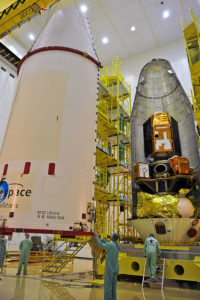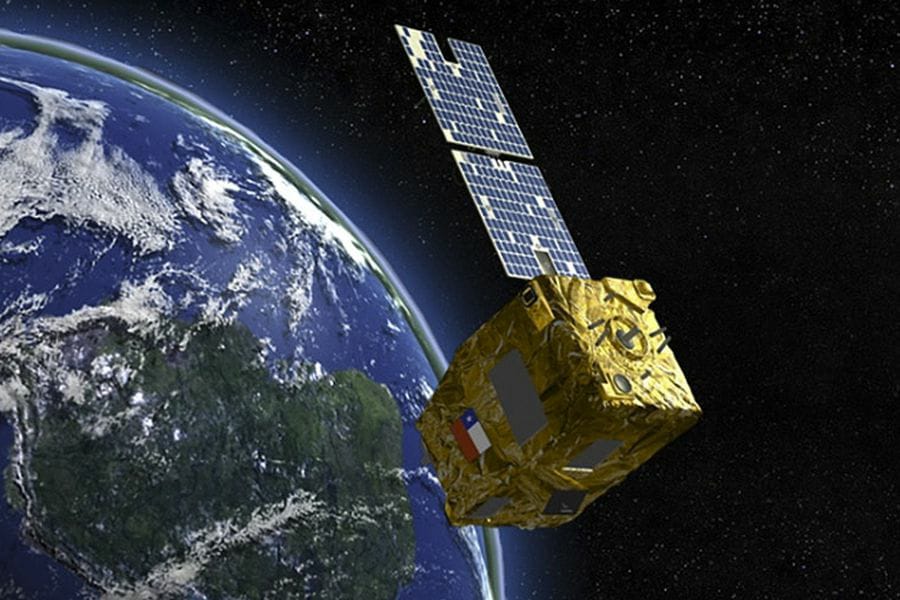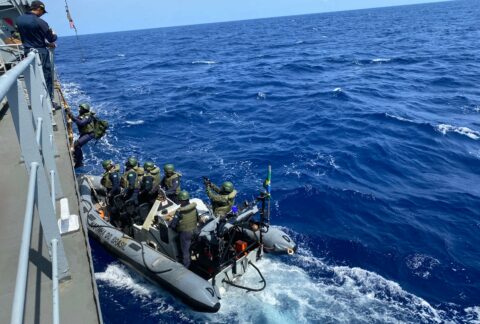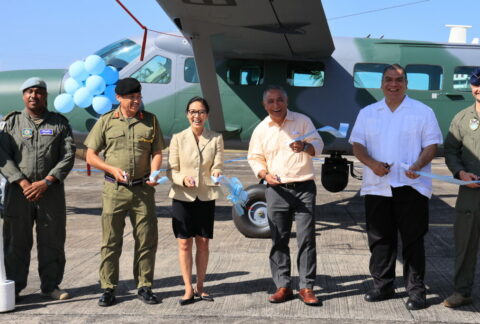The Chilean Air Force’s (FACh, in Spanish) FASat-Charlie satellite has doubled its projected lifespan by completing 10 years of operation. Launched into orbit on December 16, 2011, the Chilean satellite, built by Airbus Defence and Space, put Chile at the forefront of space presence in Latin America, becoming a milestone in space development for the country and an essential tool for its progress.
Since its launch in Kourou, French Guiana, the satellite has orbited the Earth 54,014 times and captured 252,844 images to date, covering an area of more than 1.5 million square kilometers, the FACh said in a December 16, 2021 statement. The FACh attributed the satellite’s longevity to its efficient operation and monitoring, which included overcoming obstacles that threatened its trajectory, such as meteorites or space debris.
“This is the result of experience and of having a very high-level and competent team with regard to space operations,” said Air Force Brigadier General Luis Felipe Sáez, FACh Space director.

Research and studies on climatology, forestry, vineyards, glacier retreat, vegetation, volcanic behavior, and even increased urban density and population growth are some of the contributions derived from the collected images. In addition, the satellite has served to train members of air forces of the region in the space domain, allowing the institution to take part in international exercises to support global security or ensure the peaceful use of space, and facilitating support in both national and international emergency situations.
“We have provided support with imagery and surveys, including in diverse situations such as accidents, earthquakes, fires, and avalanches,” Brig. Gen. Sáez added.
For example, in February 2021, the FASat-Charlie and crews of the Space Operations Group and the FACh Aerophotogrammetric Service took part in the multinational, U.S. Southern Command-sponsored exercise PANAMAX that focuses on ensuring the security of the Panama Canal, which was carried out remotely on that occasion.
Cooperation with countries of the region has increased in recent years. For example, also in February 2021, the FACh and the Royal Canadian Air Force met to review capabilities, projects, and areas of joint collaboration, the news site Infoespacial reported. In 2019, the FACh and the U.S. Air Force signed a joint declaration to explore new forms of cooperation in training, education, and information exchange in the space arena, the military news site Infodefensa reported.
According to the FACh, the continuous presence in space of the FASat-Charlie has allowed Chile to maintain an autonomous capability in this area. It will also serve to lay the foundations for the upcoming National Satellite System, a project that will include the launch of 10 satellites (eight of them manufactured in Chile) and three ground stations to receive data and information.
“This is the FASat-Charlie effect. Without it, and without the years of experience in this field, we would not be in a position to implement the National Satellite System today,” Brig. Gen. Sáez said, adding that “it has allowed us to consolidate the country in space, and move toward the creation of a new institutional framework and governance in space matters.”









